EYFS Curriculum
At Longmoor we believe that the first years of a child’s education are the most important in shaping their future success. Our Reception class follows the Early Years Foundation Stage (EYFS) framework, which focuses on developing children’s skills, knowledge, and understanding in a balanced and engaging way. The EYFS is divided into seven key areas of learning, which work together to support children’s overall development.
The Importance of the Seven Areas of Learning
The seven areas of learning are designed to work together to provide a well-rounded education for young children. Each area is interconnected, supporting a child’s development in multiple ways. By focusing on these areas, we ensure that children not only gain essential knowledge and skills but also grow emotionally, socially, and creatively.
At Longmoor, we understand that every child is unique, and we aim to provide a nurturing, stimulating environment where each child can thrive. By emphasising these seven key areas of learning, we set the foundation for a lifelong love of learning and a successful future.
Prime Areas
These prime areas are those most essential for your child’s healthy development and future learning.
Personal, Social and Emotional Development (PSED)
This area helps children develop a strong sense of self, build confidence, and learn how to manage their emotions and relationships. PSED supports children in understanding how to interact with others, solve problems, and cope with challenges. These skills are vital for their well-being and success both in school and beyond.
Communication and Language
Communication is at the heart of all learning. In this area, children develop their listening, speaking, and understanding skills. Through storytelling, group activities, and one-on-one conversations, children learn to express themselves clearly and listen carefully to others. This helps them become effective communicators and enhances their ability to learn across all areas of life.
Physical Development
Physical development is essential for children's growth, health, and well-being. In this area, children gain control over their movements, improve their coordination, and develop fine and gross motor skills. They also learn about staying healthy and safe, which is crucial for their long-term physical and mental health.
Children’s personal, social and emotional development (PSED) is crucial for children to lead health and happy lives, and is fundamental to their cognitive development. Underpinning their personal development are the important attachments that shape their social world. Strong, warm and supportive relationships with adults enable children to learn how to understand their own feelings and those of others. Through adult modelling and guidance, they will learn how to look after their bodies, including healthy eating, and manage personal needs independently. Through supported interaction with other children they learn how to make good friendships, co-operate and resolve conflicts peaceably. These attributes will provide a secure platform from which children can achieve at school and in later life.
Jigsaw is a whole-school approach and embodies a positive philosophy and creative teaching and learning activities to nurture children’s development as compassionate and well-rounded human beings as well as building their capacity to learn.
Jigsaw brings together PSHE Education, compulsory Relationships and Health Education, emotional literacy, mindfulness, social skills and spiritual development.
There are six Puzzles for each term.
- Celebrating Difference
- Dreams & Goals
- Healthy Me
- Relationships
- Changing Me

 Communication and Language (C&L) in the Early Years Foundation Stage (EYFS) is taught as a foundational area of learning, emphasising the development of speaking, listening, and understanding skills. The teaching approach is designed to build confidence, interaction abilities, and vocabulary in young learners. The development of children’s spoken language underpins all seven areas of learning and development. Children’s back-and-forth interactions from an early age form the foundations for language and cognitive development. The number and quality of the conversations they have with adults and peers throughout the day in a language-rich environment is crucial. By commenting on what children are interested in or doing, and echoing back what they say with new vocabulary added, practitioners will build children’s language effectively. Reading frequently to children and engaging them actively in stories, non-fiction, rhymes and poems, and then providing them with extensive opportunities to use and embed new words in a range of contexts, will give children the opportunity to thrive. Through conversation, story-telling and role play, where children share their ideas with support and modelling from their teacher, and sensitive questioning that invites them to elaborate, children become comfortable using a rich range of vocabulary and language structures.
Communication and Language (C&L) in the Early Years Foundation Stage (EYFS) is taught as a foundational area of learning, emphasising the development of speaking, listening, and understanding skills. The teaching approach is designed to build confidence, interaction abilities, and vocabulary in young learners. The development of children’s spoken language underpins all seven areas of learning and development. Children’s back-and-forth interactions from an early age form the foundations for language and cognitive development. The number and quality of the conversations they have with adults and peers throughout the day in a language-rich environment is crucial. By commenting on what children are interested in or doing, and echoing back what they say with new vocabulary added, practitioners will build children’s language effectively. Reading frequently to children and engaging them actively in stories, non-fiction, rhymes and poems, and then providing them with extensive opportunities to use and embed new words in a range of contexts, will give children the opportunity to thrive. Through conversation, story-telling and role play, where children share their ideas with support and modelling from their teacher, and sensitive questioning that invites them to elaborate, children become comfortable using a rich range of vocabulary and language structures.
Here's an overview of how C&L is taught in the EYFS:
Core Aspects of Communication and Language in EYFS
Listening and Attention:
- Children are encouraged to listen attentively in a range of situations, such as during storytelling, circle time, or group discussions.
- Activities often include songs, rhymes, and interactive stories to engage their attention and help them respond appropriately.
Understanding:
- Teachers and practitioners model clear language and provide opportunities for children to follow instructions, answer questions, and engage in discussions.
- Practical activities are used to enhance comprehension, such as sequencing tasks, role-play scenarios, and discussions about real-world experiences.
Speaking:
- A strong emphasis is placed on encouraging children to express their ideas and feelings using complete sentences.
- They are introduced to new vocabulary during play, topic-based activities, and stories, with prompts to use these words in context.
- Open-ended questions are used to inspire critical thinking and detailed responses.
Strategies to Foster Communication and Language
Role-Play and Storytelling:
- Children engage in imaginative play and storytelling, using props and costumes to act out scenarios.
- This helps develop narrative skills and allows them to explore dialogue and self-expression.
Interactive Group Activities:
- Activities like group storytelling, show-and-tell, and partner discussions encourage social interaction and turn-taking.
- These sessions help children understand conversational norms, such as listening, responding, and questioning.
Adult Interaction and Scaffolding:
- Practitioners model effective communication by narrating actions, expanding on children’s speech, and asking probing questions.
- Support is tailored to individual needs, ensuring every child can participate and develop at their own pace.
Books and Print-Rich Environments:
- Storybooks and picture books are central to the curriculum, fostering a love for language and reading.
- Children are encouraged to discuss characters, predict story outcomes, and relate stories to their own experiences.
Songs and Rhymes:
- Regular singing and rhyme sessions enhance phonological awareness and memory.
- Action songs integrate physical activity, making language learning engaging and multi-sensory.
Encouraging Curiosity and Conversation:
- Practitioners create opportunities for children to ask questions, share observations, and explain their thinking.
- Explorative topics and thematic activities (e.g., nature walks, sensory play) stimulate conversations and language use.
We recognise the fundamental role of physical development in the Early Years Foundation Stage (EYFS). Through a combination of structured and child-led activities, we provide opportunities for children in Nursery and Reception to develop their gross and fine motor skills, laying the foundation for healthy movement, coordination, and overall physical well-being.
Gross Motor Development
We support gross motor development through a variety of engaging activities that help children build strength, balance, and coordination. Our outdoor and indoor environments are designed to encourage active play, including climbing, running, jumping, and balancing. Children take part in:
- Daily movement activities such as obstacle courses, dance, and yoga.
- Outdoor play with bikes, scooters, and climbing equipment.
- Structured PE lessons using the Get Set 4 PE scheme, which ensures progression in skills such as throwing, catching, and spatial awareness.
Fine Motor Development
Developing fine motor skills is essential for early writing, self-care, and hand-eye coordination. We integrate fine motor activities into our daily routines, including:
- Play dough, threading, and tweezers to strengthen finger muscles.
- Mark-making opportunities with a variety of tools like chalk, paintbrushes, and pencils.
- Practical tasks such as buttoning coats, using cutlery, and handling small objects.
PE and ‘Get Set 4 PE’
We follow the Get Set 4 PE scheme to ensure a high-quality and structured approach to physical education. Through this programme, children experience:
- Fun and engaging PE sessions designed specifically for their age group.
- Progressive skill development in movement, coordination, and team games.
- Confidence-building activities that encourage resilience and teamwork.
By embedding physical development into our daily curriculum and play, we help children gain the skills and confidence they need to lead active and healthy lives.
Literacy
Literacy in the EYFS focuses on developing children’s reading and writing skills. Children are encouraged to explore books, print, and writing materials, developing their love of reading while building essential skills for early literacy. From recognising letters and sounds to starting to write simple words and sentences, literacy is foundational for all future learning.
Mathematics
In the mathematics area, children explore numbers, shapes, and patterns through play and hands-on activities. They begin to understand concepts like counting, addition, subtraction, and measuring. Developing early mathematical skills builds confidence and lays the foundation for problem-solving and logical thinking in later years.
Understanding the World
This area helps children make sense of the world around them by exploring nature, technology, and different cultures. Through play and investigation, children develop an understanding of how things work, their environment, and the people in their lives. This fosters curiosity, critical thinking, and a sense of wonder.
Expressive Arts and Design
In this area, children explore creativity through music, dance, art, and imaginative play. They learn to express themselves and communicate their ideas in a variety of ways. Creativity is an essential skill that encourages problem-solving and emotional expression, while also fostering a love for the arts.
At our setting, we foster a love for literacy from the very start, using engaging and developmentally appropriate approaches tailored to each age group. Our focus is on nurturing early reading and writing skills through interactive and creative activities.
Nursery
In Nursery, we introduce early mark-making and storytelling through Scribble Club and Story Dough. Scribble Club encourages children to explore making marks in a fun and pressure-free way, helping them develop the fine motor skills needed for writing. Story Dough sessions combine storytelling with hands-on dough activities, allowing children to build their imaginative thinking and language skills while strengthening their hand muscles for future writing.
Reception
In Reception, we enhance children's literacy skills through Drawing Club, an engaging approach where children explore stories through drawing and discussion. This builds comprehension, vocabulary, and early writing confidence in a creative and enjoyable way. In Drawing Club, we focus on one story a week we Immerse the children in the world of stories and show them the joy of reading, Developing children’s creativity and imagination to show them that they are extraordinary, bringing the artist picking their creative brains.
We share a treasure trove of vocabulary with children to open up the playground of language to them. Encouraging to use these new words within their play and at home. Vocabulary is a key component of our early years curriculum. It is regularly referred to throughout all interactions. We provide opportunities for the children to encounter vocabulary through high-quality texts, all conversations, during enhanced continuous provision and continuous provision activities, while being read to, during modelled writing, when listening to others, and encounters on trips and with experts. Drawing Club also encourages our children to write using our phonics and number knowledge to write "codes" that make our pictures do magical things. We allow the children to be independent thinkers coming up with their own words/sentences, which unlocks the imagination of their picture, thinking of crazy imaginative unique ideas that could happen to our drawing. As well as this each week, Reception children complete one focused writing piece linked to the theme/topic, helping them apply their developing skills in meaningful contexts.
Phonics – Read Write Inc.
Across EYFS, we follow the Read Write Inc. programme for daily phonics sessions. This structured and systematic approach helps children develop strong foundations in both reading and writing. Through lively and interactive lessons, children learn letter sounds, blending techniques, and segmenting skills to support their reading fluency and writing confidence.
By combining phonics with creative storytelling and mark-making experiences, we provide a rich and engaging literacy curriculum that inspires a lifelong love of reading and writing.
It is crucial for children to develop a life-long love of reading. Reading consists of two dimensions: language comprehension and word reading. Language comprehension (necessary for both reading and writing) starts from birth. It only develops when adults talk with children about the world around them and the books (stories and non-fiction) they read with them, and enjoy rhymes, poems and songs together. Skilled word reading, taught later, involves both the speedy working out of the pronunciation of unfamiliar printed words (decoding) and the speedy recognition of familiar printed words. Writing involves transcription (spelling and handwriting) and composition (articulating ideas and structuring them in speech, before writing).
Reading
 In Nursery we aim to develop a love of books through handling them, reading with an adult, and hearing stories and rhymes read aloud. We want children to love reading and engage in extended sentences about stories; to develop their vocabulary and know how to handle books carefully; learning the different parts of the book (cover, title, pages,) and to understand that print carries meaning. Reading is at the heart of all the EYFs curriculum and stories and rhymes for the stimulus for their topic across the week.
In Nursery we aim to develop a love of books through handling them, reading with an adult, and hearing stories and rhymes read aloud. We want children to love reading and engage in extended sentences about stories; to develop their vocabulary and know how to handle books carefully; learning the different parts of the book (cover, title, pages,) and to understand that print carries meaning. Reading is at the heart of all the EYFs curriculum and stories and rhymes for the stimulus for their topic across the week.
In Reception children continue to develop their vocabulary; they will begin to demonstrate an understanding of what they have read and begin to use their new vocabulary during discussions about their books—fiction, non-fiction, rhymes, poems and role play. They will begin to read fully decodable books in class in small focus Guided Reading groups. Questions are planned for using VIPERS which is a way of encouraging children to develop their comprehension. There is a strong focus on decoding the books, using their phonics knowledge; developing their fluency and expression through carefully modelled prosody reading; and then answering questions verbally.
Useful Links to Support Phonics at Home
Reception
Children develop a love of maths through games, songs, rhymes, and play using concrete manipulatives, pictorial structures and representations. We have developed our maths teaching using the NCTEM programme along with whole school approach of Total Maths. High quality learning environments and meaningful interactions with adults in maths lessons and through everyday routines and provision help to embed mathematical knowledge and skills.
Maths in EYFS is taught in a very practical way. Activities are designed to enable children to 'do' and 'talk about' the maths. By nurturing and fostering a love for numbers and a curiosity about how to solve problems, we aim to give all children the opportunity to develop a passion and love of maths. We want them to grow as talented and happy mathematicians who are not afraid to make and learn from mistakes and can apply what they know to many different situations, ready for lifelong learning.
Nursery
Within the early years, maths is encouraged through a range of planned and structured play situations, both independent and supported by adults as play partners. The Characteristics of Effective Learning (Playing & Exploring, Active Learning, Creating and Thinking Critically) are at the heart of what we do in every subject, including maths.
In Nursery, we incorporate maths into everything we do and seize every opportunity to develop the children’s mathematical curiosity and vocabulary. Much of our learning is through high quality play, and we provide real-life, meaningful experiences with plenty of opportunities for exploration and discovery.
We use our own knowledge and expertise to plan for and provide a high quality learning environment, modelling the use of resources and appropriate mathematical language as we support our children in continuous provision.
Useful Links for Home Learning
.png) Understanding the world involves guiding children to make sense of their physical world and their community. The frequency and range of children’s personal experiences increase their knowledge and sense of the world around them – from visiting parks, libraries and museums to meeting important members of society such as police officers, nurses and firefighters. In addition, listening to a broad selection of stories, non-fiction, rhymes and poems will foster their understanding of our culturally, socially, technologically and ecologically diverse world. As well as building important knowledge, this extends their familiarity with words that support understanding across domains. Enriching and widening children’s vocabulary will support later reading comprehension.
Understanding the world involves guiding children to make sense of their physical world and their community. The frequency and range of children’s personal experiences increase their knowledge and sense of the world around them – from visiting parks, libraries and museums to meeting important members of society such as police officers, nurses and firefighters. In addition, listening to a broad selection of stories, non-fiction, rhymes and poems will foster their understanding of our culturally, socially, technologically and ecologically diverse world. As well as building important knowledge, this extends their familiarity with words that support understanding across domains. Enriching and widening children’s vocabulary will support later reading comprehension.
To teach History and Geography in EYFS using the United Curriculum scheme, the focus is embedded within the Understanding the World area, which aligns with the Early Years Foundation Stage (EYFS) principles. This area includes milestones in "Past and Present" and "People, Culture, and Communities," which correspond to historical and geographical themes.
History
Children are supported in developing their knowledge, skills and understanding that helps them to make sense of the world. The pupils are encouraged to talk about their families and past and present events in their lives. They will begin to gain knowledge and understanding of the world. Children at the expected level of development will be able to talk about the lives of people around them and their roles in society. They will know some similarities and differences between things in the past and now, drawing on their experiences and what has been taught in class.
Objectives:
- Help children understand the concept of time by exploring changes in their own lives and the lives of others.
- Introduce historical events and people that are meaningful or relatable to children.
Approaches:
- Storytelling: Share stories about the past, including family traditions and community changes.
- Timelines: Use visual timelines showing children's own growth or local historical landmarks.
- Role Play: Create opportunities for children to engage in pretend play related to historical events or figures.
- Discussion: Ask children about their understanding of “then and now” using simple prompts.
Geography (People, Culture, and Communities)
In Nursery and Reception, we begin to teach the skills children will need to access Geography within the National Curriculum. We immerse the children in rich learning experiences using a variety of resources. Fiction and non-fiction books, together with sources from the internet are used to expand children's knowledge of places around the world. We use our school grounds to explore routes closer to home and experience seasonal changes first hand.
Objectives:
- Foster awareness of their immediate environment and the broader world.
- Explore differences and similarities between various places and cultures.
Approaches:
- Local Walks: Take walks to observe features of the local community (parks, shops, post office).
- Mapping Activities: Introduce simple maps to help children understand directions and places.
- Cultural Celebrations: Integrate discussions about festivals and traditions from different cultures.
- Interactive Activities: Use globes, puzzles, or digital resources to highlight geographical features.
Integration
The teaching is designed to:
- Build Curiosity: Encourage children to ask questions about the past and their surroundings.
- Use Adaptable Methods: Tailor activities to the children's experiences and developmental levels.
- Promote Active Engagement: Create hands-on experiences that link to their lives and interests.
- Connect Subjects: Make connections across themes, such as linking a story about historical figures to geographical exploration of their origins.
This approach ensures children develop foundational knowledge and skills in History and Geography through play-based and inquiry-led learning.
Science
At Longmoor, we aim to deliver a well-balanced EYFS curriculum, where children can explore, investigate and ask questions about objects, people and resources within their child initiated play and also during adult led and taught sessions. A fundamental part of the EYFS curriculum is enabling the environment so that children can fully access aspects of Understanding the world within all areas of the classroom, both inside and out.
Children are naturally inquisitive and love to ask questions, explore new things and investigate how things work. It is vital, therefore, that we develop their passion of scientific discovery from a young age.
In Early Years Foundation Stage (EYFS), science is taught through a hands-on, exploratory approach using the Developing Experts scheme. This curriculum emphasises engaging children with their natural curiosity and understanding of the world through various themed lessons that integrate physical activities, observations, and creative tasks. Here are the key elements:
Learning Intentions:
- Each lesson has clear objectives, such as understanding living and non-living things, identifying animal habitats, or exploring the senses. The focus is on building foundational scientific concepts through practical experiences and discussion.
Links to Early Learning Goals (ELGs):
- Lessons align with ELGs, fostering skills such as making observations, using tools with precision, comparing similarities and differences in the environment, and understanding basic scientific processes.
- Specific goals like physical development, understanding the world (UW), and expressive arts are interwoven.
Interactive Activities:
- Children participate in activities like building models, conducting simple experiments (e.g., testing which objects float or sink), and observing changes in materials (e.g., melting chocolate).
- Crafting and sensory exploration are used to solidify understanding.
Vocabulary Building:
- Lessons introduce "Rocket Words," which are key scientific terms tailored to young learners (e.g., "habitat," "living," "push/pull").
- Children are encouraged to use these words in context to build their language and conceptual knowledge.
Themes and Topics:
- Topics span animals, plants, space, forces, seasons, health, and more, ensuring a broad and engaging introduction to science.
- Seasonal and cultural contexts are incorporated, such as lessons on making dough for Chinese New Year or examining seasonal changes.
This approach ensures that EYFS learners engage with science in a playful yet structured manner, fostering their natural curiosity and preparing them for more formal scientific study in later years.
Religious Education
We follow the Kapow Primary scheme to deliver high-quality Religious Education (RE) that nurtures curiosity, respect, and understanding of different faiths and worldviews. Our approach in the Early Years Foundation Stage (EYFS) is designed to be engaging, age-appropriate, and inclusive, laying the foundations for a lifelong appreciation of diversity and belief.
Our Approach
Through the Kapow scheme, we introduce young children to key religious and cultural concepts using stories, songs, role-play, and hands-on activities. Our teaching aligns with the Early Years Foundation Stage (EYFS) framework, supporting children’s personal, social, and emotional development while encouraging an awareness of different beliefs and traditions.
How We Teach RE in EYFS
- Exploring Stories and Celebrations: We use storybooks and visual storytelling to introduce children to religious festivals, traditions, and values from different faiths.
- Hands-on Learning: Children engage in creative activities such as craft-making, music, and drama to deepen their understanding of cultural and religious practices.
- Role-play and Discussion: Through play-based learning and guided discussions, children explore themes of kindness, respect, and belonging.
- Visitors and Experiences: Where possible, we invite visitors from different religious communities and explore religious artefacts to bring learning to life.
- Outdoor and Sensory Learning: Using nature and sensory play, we help children connect with themes of wonder, gratitude, and reflection.
Our Aims
By following the Kapow scheme in EYFS, we aim to:
- Foster a sense of respect and acceptance for different beliefs and cultures.
- Develop early understanding of key religious concepts in a fun and accessible way.
- Support children’s communication skills through storytelling and discussions.
- Encourage curiosity and open-mindedness about the world around them.
Our RE teaching in EYFS ensures that children develop a positive awareness of diversity, preparing them for their learning journey through school and beyond.
 Computing
Computing
Within the new EYFS curriculum the ‘Technology’ strand has been removed from ‘Understanding the World’ and has not been replaced with any updated guidance. However, computing and technology are still vitally important subjects to teach to Foundation children. Teaching computing within the curriculum ensures that children enter Year 1 with a strong foundation of knowledge. Computing lessons in the EYFS also ensure that children develop listening skills, problem-solving abilities and thoughtful questioning — as well as improving subject skills across the seven areas of learning. In EYFS, the children begin to recognise how a range of technology is used in places such as homes and schools and use technology for different purposes.
EYFS is centred around play-based, unplugged activities that focus on building pupils’ listening skills, curiosity, creativity and problem solving. In the Early Years classroom there are computing resources available at all times in the continuous provision: Our children have access to PCs at all times, take photographs on the iPads and cameras, play games on the interactive whiteboard or on iPads, experiment with pully toys and lift-the-flap books, have access to remote controlled cars and Beebots and more resources to begin experimenting with Computer Science.
At Longmoor we are passionate about nurturing creativity and self-expression in our children. Through our carefully planned curriculum, we provide rich opportunities for children to explore, experiment, and develop their artistic and musical skills. We follow the Kapow scheme for Music and Design Technology (DT) and the Access Art curriculum for Art, ensuring a broad and engaging experience in Expressive Arts and Design.
We believe every child is an artist, musician, and designer. We provide a nurturing environment where children feel confident to experiment and create, developing a lifelong appreciation for the arts.
The children have many opportunities to explore this through the different continuous provision and enhancements in the setting. We always provide a role-play area for the children to investigate. Small world play and construction are used to develop these skills.
Music - Kapow
Our music curriculum, delivered through the Kapow scheme, introduces children to the joy of making music. Reception children develop their listening skills, explore different sounds, and experiment with rhythm and melody through:
- Singing songs and nursery rhymes to build confidence and vocal skills.
- Using instruments to explore different sounds and create simple compositions.
- Engaging in movement and dance to respond to music expressively.
- Learning about musical elements such as tempo, dynamics, and pitch in a playful, interactive way.
Kapow’s structured approach ensures that children develop a solid foundation in music while having fun and expressing themselves creatively.
Design Technology (DT) - Kapow
Through the Kapow DT scheme, children develop problem-solving and critical thinking skills by designing, making, and evaluating simple projects. Key elements include:
- Exploring different materials and tools safely.
- Developing fine motor skills through cutting, joining, and assembling materials.
- Designing and making models with purpose and imagination.
- Encouraging collaborative work and communication through shared projects.
These activities help children develop resilience and creativity, laying the foundation for future design and engineering skills.
Art - AccessArt
Our Art curriculum follows the AccessArt approach, which celebrates creativity and artistic expression. Through this, children:
- Explore different art materials such as paint, clay, and collage to express their ideas.
- Develop mark-making and fine motor skills through drawing and painting.
- Learn about different artists and artistic styles to inspire their own creativity.
- Experiment with textures, colours, and patterns in a process-focused, explorative way.
The AccessArt curriculum encourages open-ended exploration, allowing children to develop confidence in their artistic abilities and personal expression.
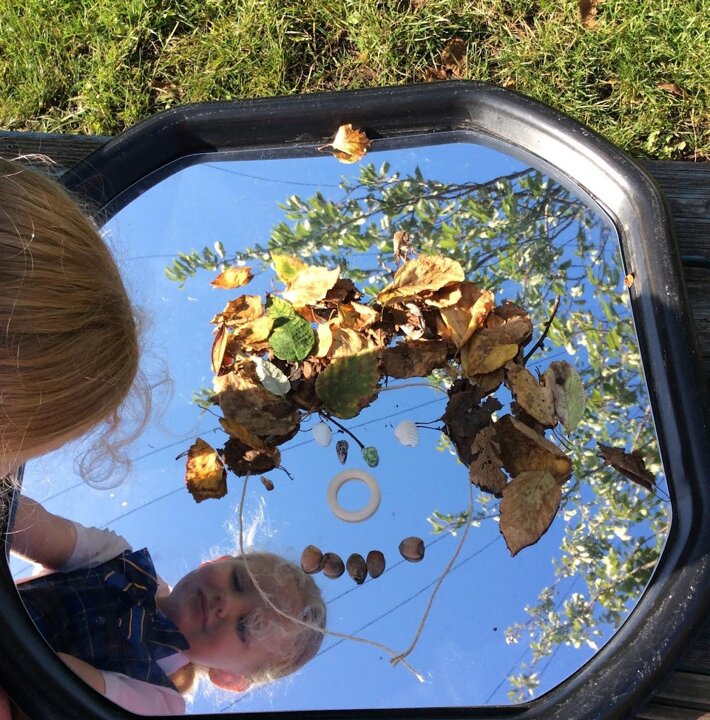
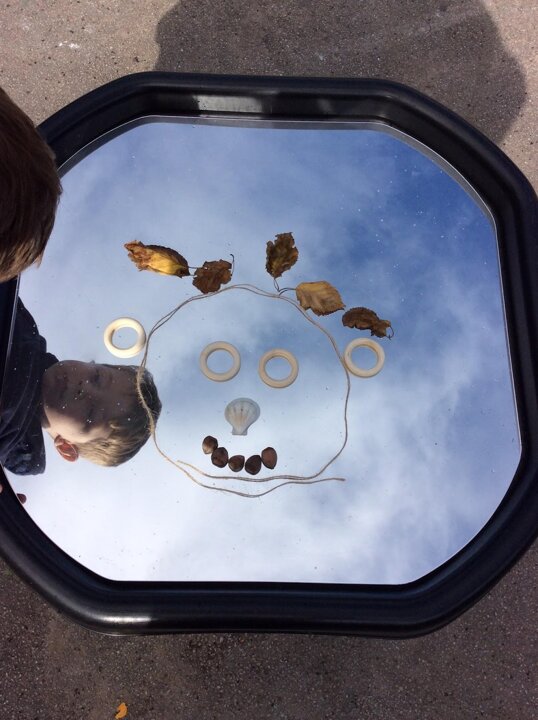
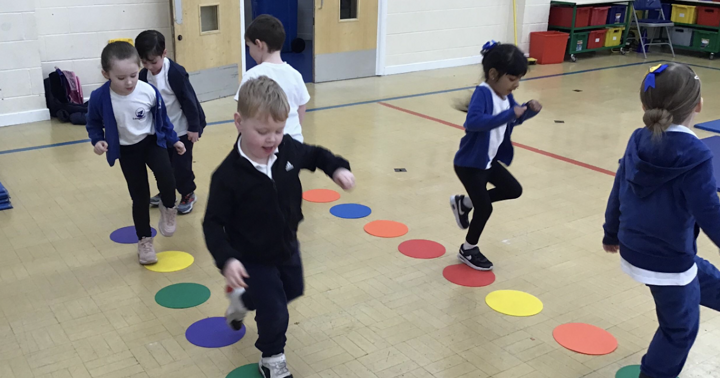
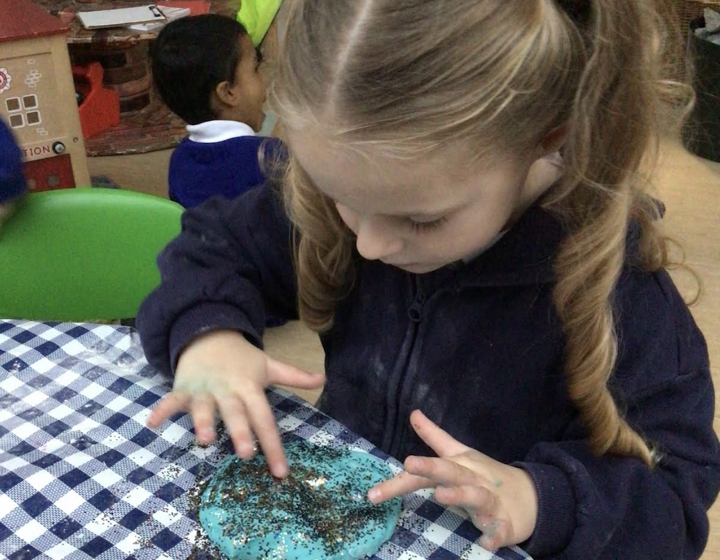
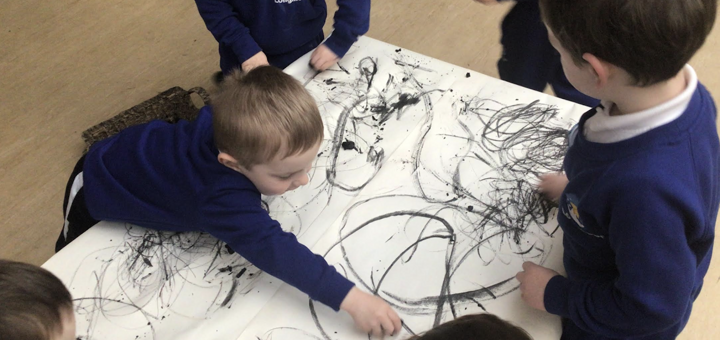

.png)
.png)
.png)
.png)
.png)
.png)
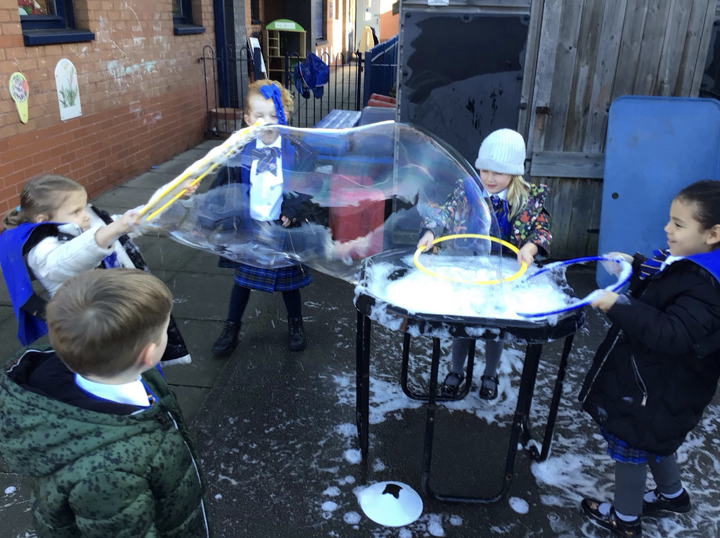
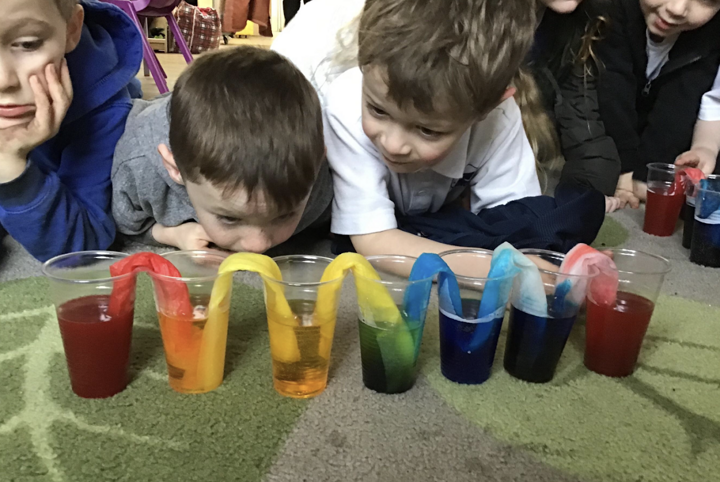
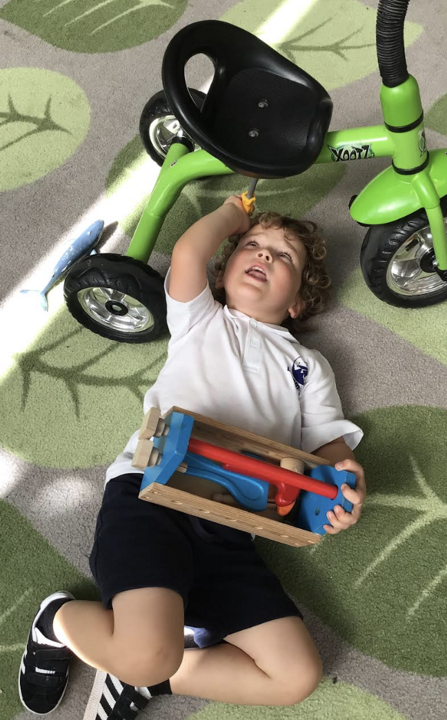
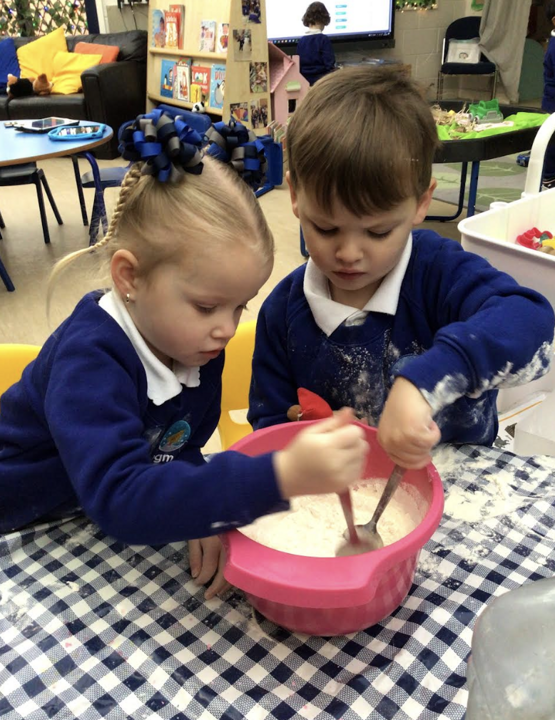
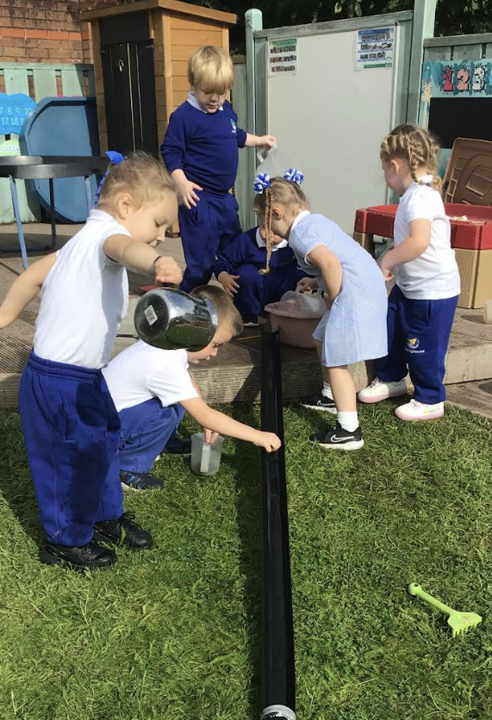
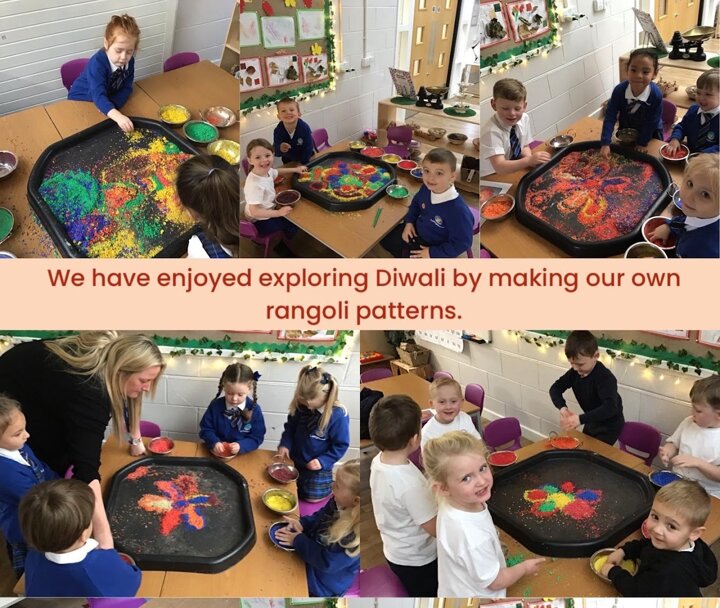
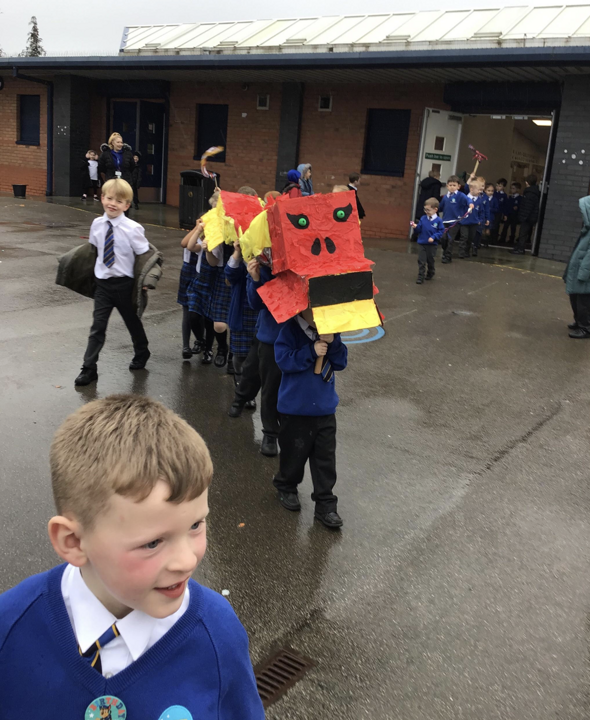
.png)
.png)
.png)
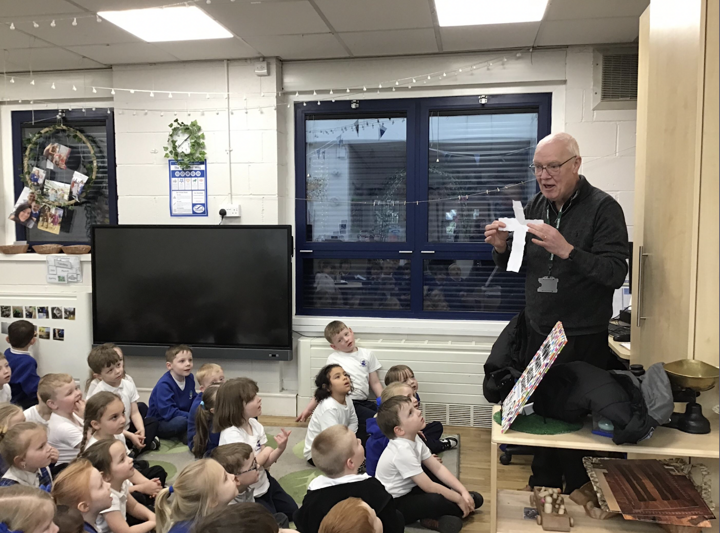
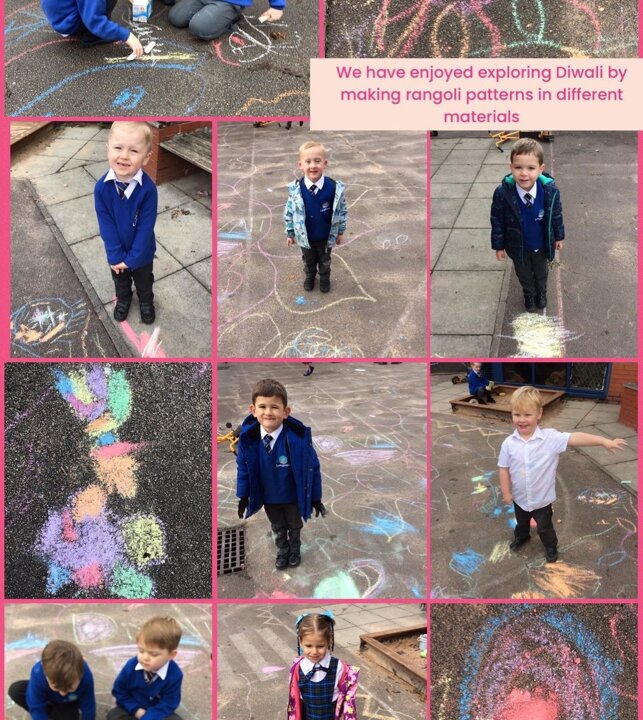
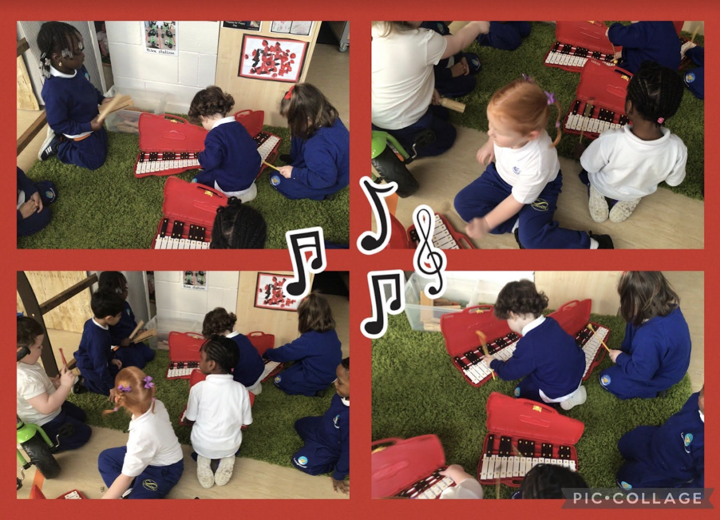
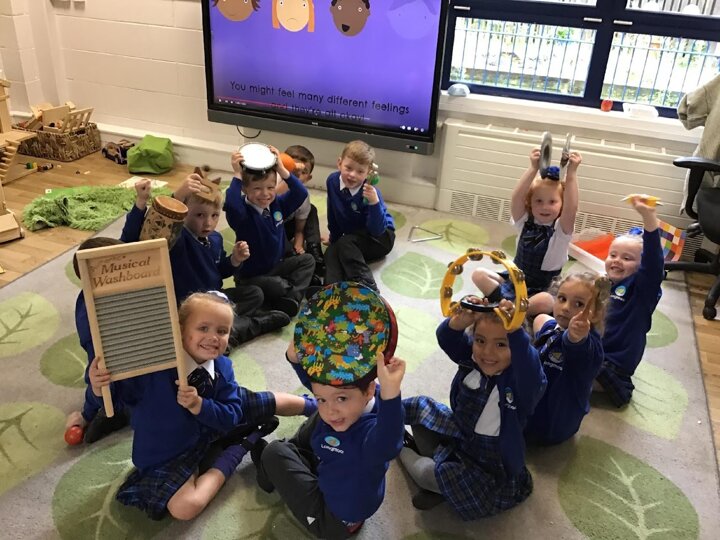
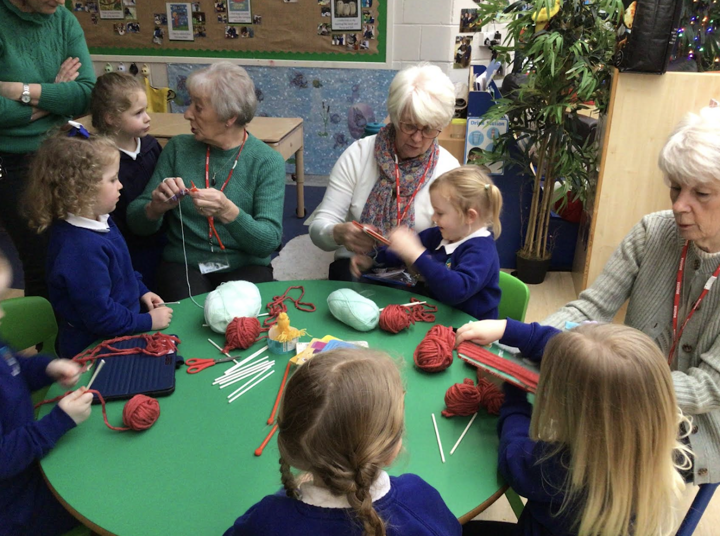
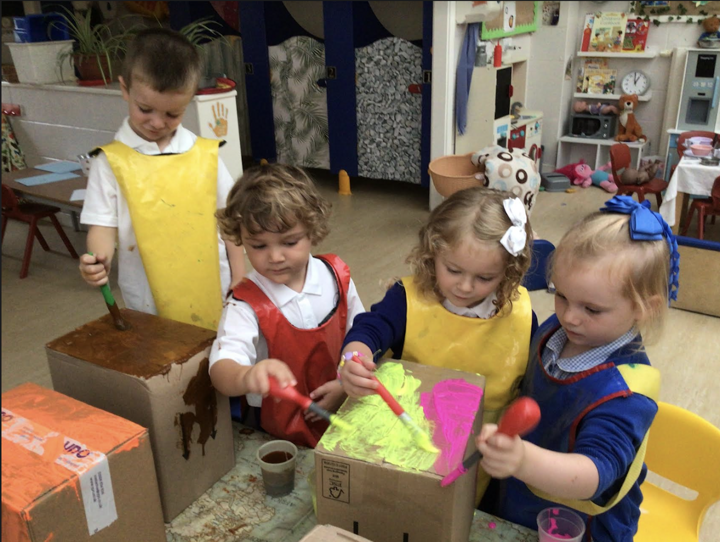
.png)
.png)
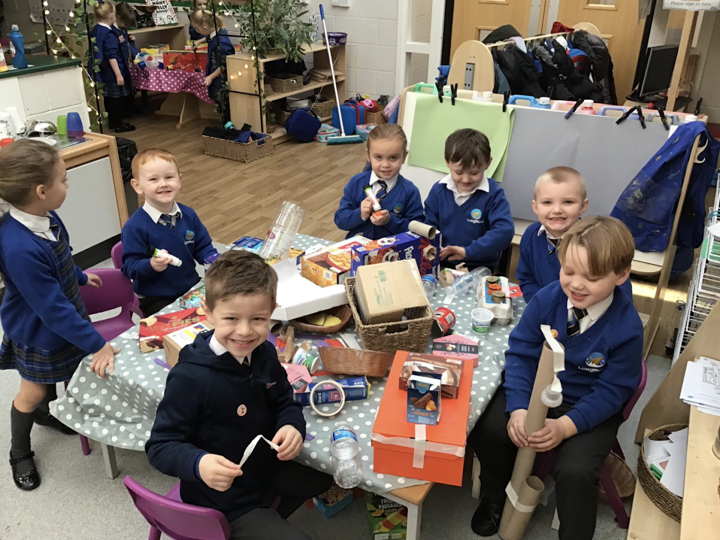
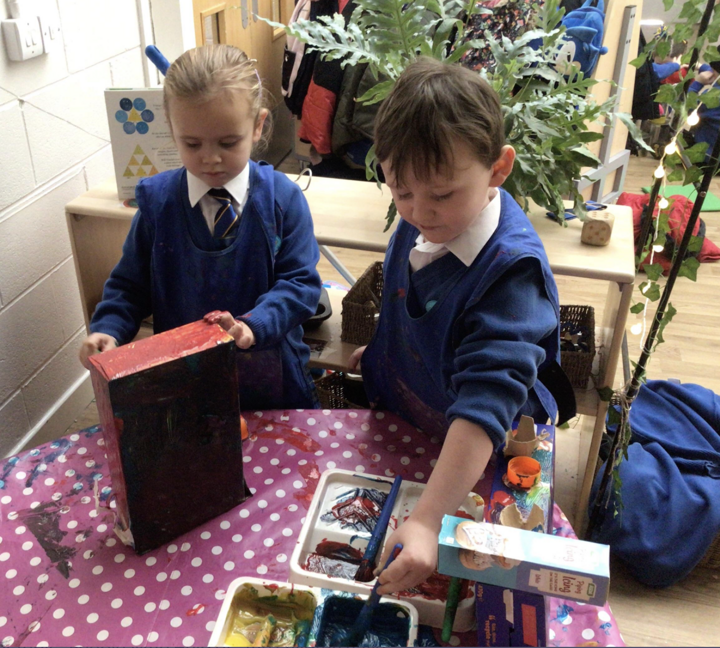
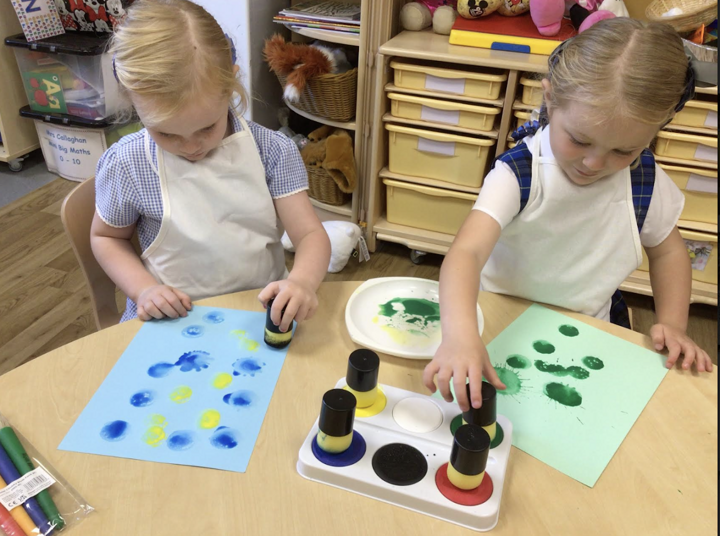
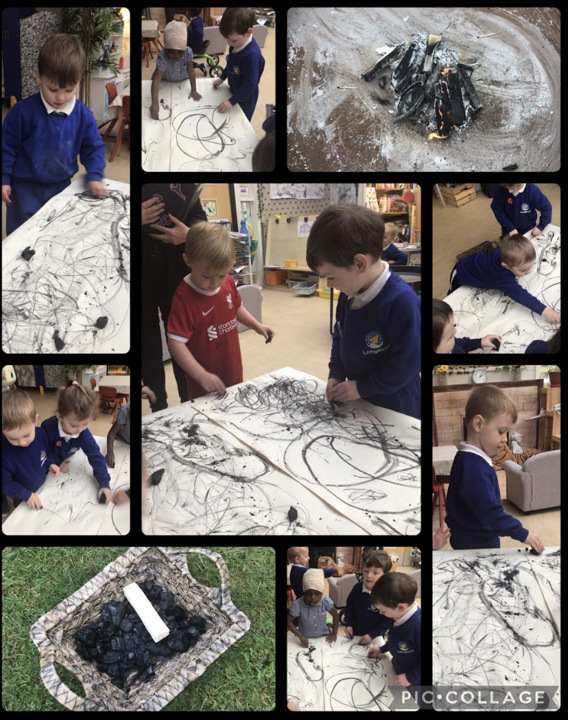
.png)
.png)
.png)
